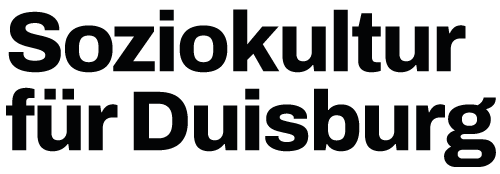In very simplified terms, socioculture means fulfilling social purposes with cultural means. Whether as a place for projects with young people, as a meeting place for the neighborhood, as a free space for artists and civil society initiatives, as a forum for socio-political discussions: Sociocultural centers offer the opportunity to become active themselves. Socioculture is about participation. Socioculture is for everyone! (If you want more info, check out www.soziokultur.de)
The term “socioculture” was coined by the youth center movement of the 1970s and 1980s. In the time of wild squats and autonomous centers, when young people rebelled against the capitalist standardization of social life, they fought for spaces in the cities for their alternative ideas of a life of solidarity, free from control and tradition. These free spaces were mostly fought for against repression, administered in a self-organized way, and from this many “socio-cultural centers” emerged over time.
With this history, “socioculture” has always been a counter design to established cultural institutions. A subversive contradiction against the boredom of consumer society and against discrimination of alternative lifestyles. Duisburg also had a socio-cultural center – the “Eschhaus”. But since its closure at the end of the 1980s, all attempts to establish a self-managed socio-cultural center in Duisburg have failed sooner or later. Since then, more and more new initiatives have tried to get rooms from the city.
“Put on something decent!” and “Why don’t you go to the theater!” was often the reaction – and it was the same in Duisburg until recently. But we have made a few steps forward in the last few years! With the pub Harmonie in Ruhrort and the Stapeltor in the city center, we are already two members of the umbrella organization www.soziokultur-nrw.de. More self-organized places are emerging and more collectives are looking for spaces to develop.
In doing so, we see parallels between the struggles for freedom of a young generation in the 80s and the manifold struggles against racism and sexism in today’s plural society. It is about emancipation, about visibility, about safe spaces and own resources – for the right to a self-determined life and against the integration paradigm of the dominant society. We see socioculture as an opportunity to work together towards a society of solidarity without exploitation and discrimination. That is why it is a central concern of ours that the resources for cultural work in the city are distributed fairly and that structural discrimination is dismantled.
Together with socio-cultural places, artistic associations and solidarity initiatives we want to network. With the goal: More socioculture for Duisburg!
We want to make forgotten connections to the past visible, disentangle the entangled present, and tinker with a common idea of socioculture for the plural society of the future.
